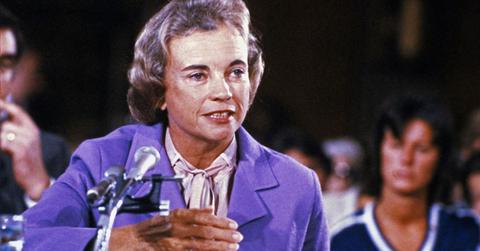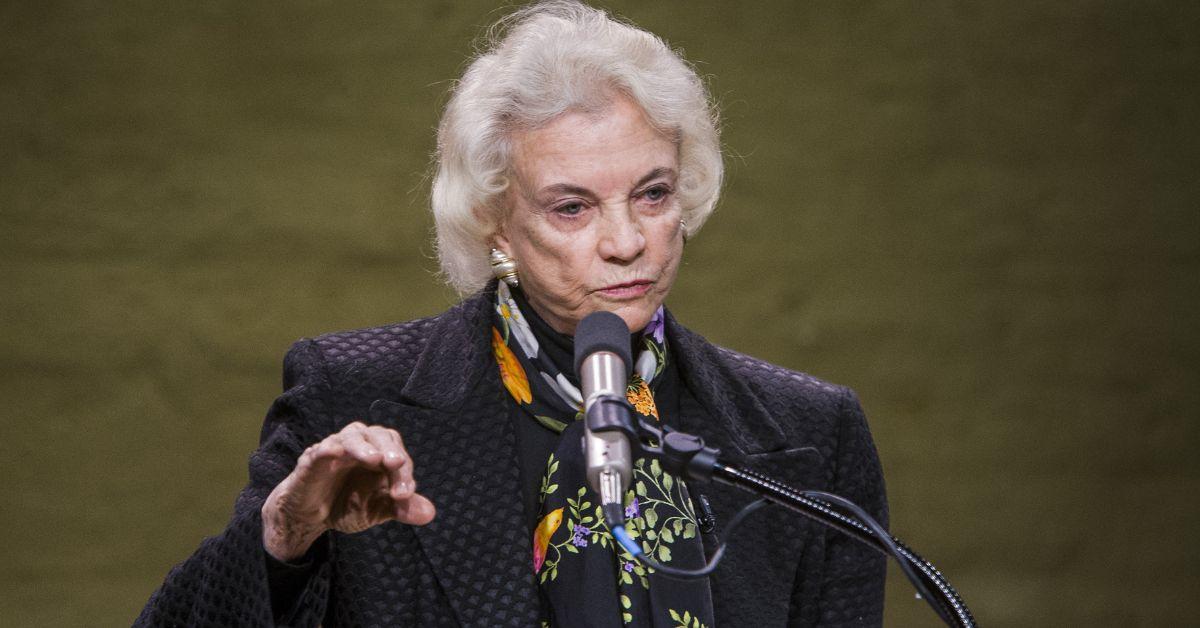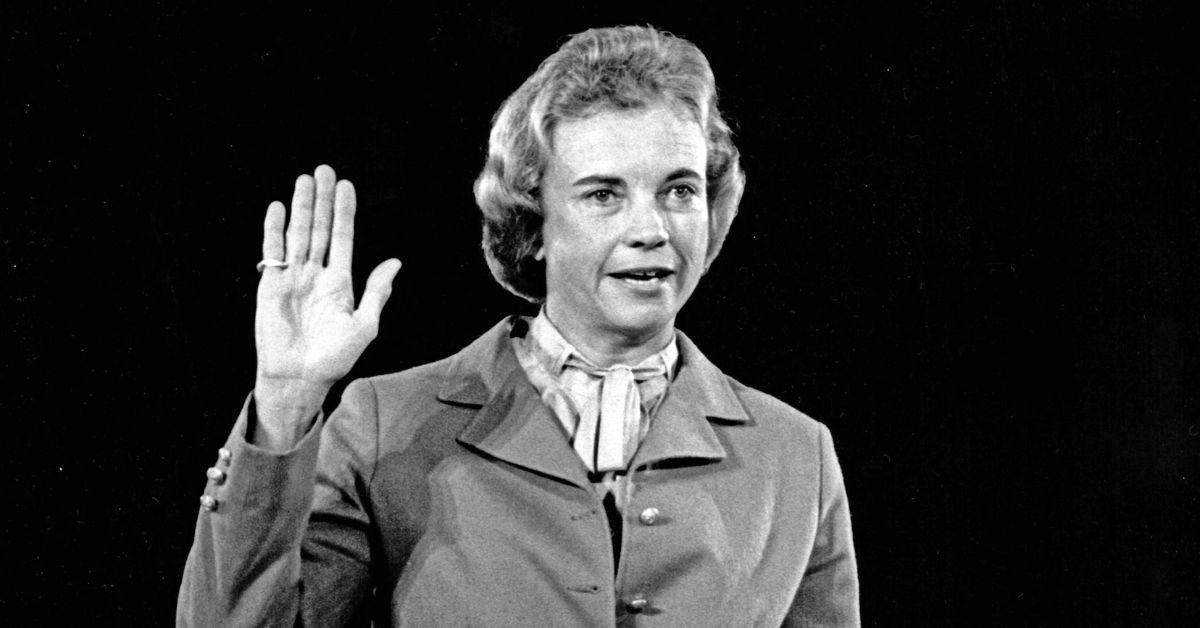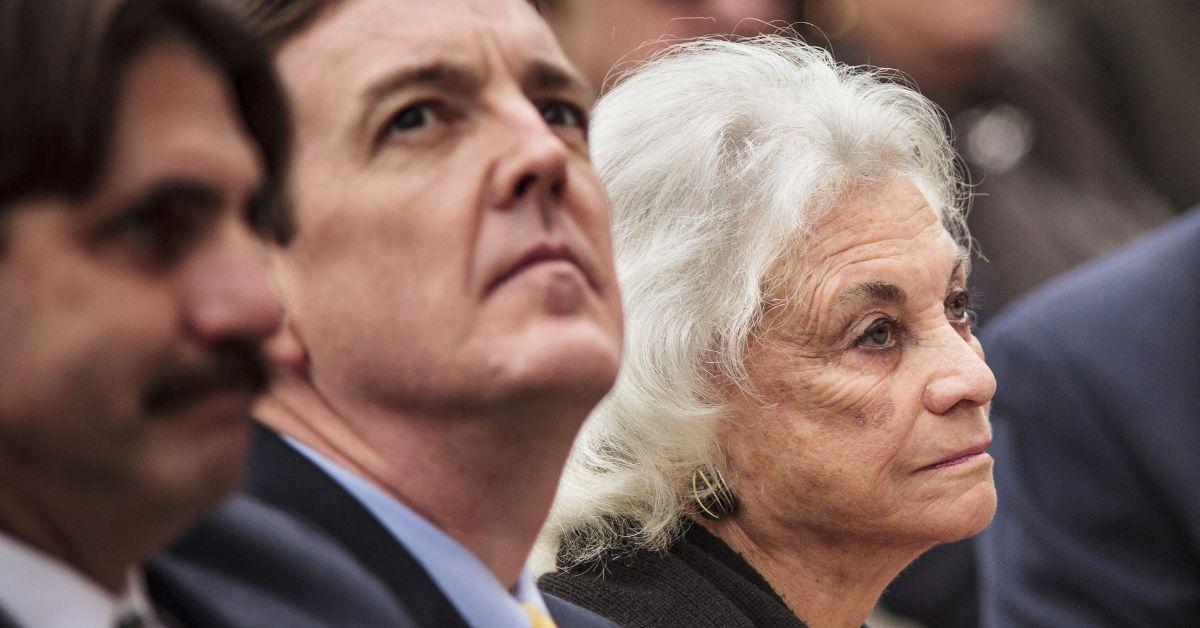 NEWS
NEWSSandra Day O'Connor, First Woman on U.S. Supreme Court, Dies at 93 After Yearslong Battle With Dementia

Dec. 1 2023, Published 12:05 p.m. ET
Former Justice Sandra Day O'Connor, the first woman to serve on the Supreme Court, has passed away at the age of 93, according to an announcement from the court. She died from complications related to advanced dementia.

Sandra Day O'Connor died at 93.
O'Connor paved the way for generations of female lawyers, inspiring the five women who served on the high court after her nomination.
She was known for her moderate conservative views and often served as the swing vote on important social issues.
Despite her groundbreaking career, O'Connor lived to see some of her decisions overturned by the court's new conservative leaning. They included an abortion decision she helped pen in 1992, as well as decisions related to church and state and affirmative action.
Chief Justice John Roberts described O'Connor as a "patriot" and a "fiercely independent defender of the rule of law" and praised her advocacy for civics education.

O'Connor was nominated to the Supreme Court in 1981 by President Ronald Reagan.
In 2018, O'Connor revealed in a letter that she had been diagnosed with early-stage dementia, likely Alzheimer's disease.
She expressed gratitude for the blessings in her life and remained committed to raising awareness of the disease.
O'Connor was nominated to the Supreme Court in 1981 by President Ronald Reagan, who called her "truly a person for all seasons." She grew up on a ranch in Arizona and developed a strong sense of self-reliance and independence.
Want OK! each day? Sign up here!

In 2018, O'Connor revealed in a letter that she had been diagnosed with early-stage dementia.
During her tenure on the court, O'Connor became known as the deciding vote in many controversial cases.
She played a vital role in the 1992 Planned Parenthood v. Casey decision, which affirmed a woman's right to an abortion. The ruling was later overturned by a conservative court.
O'Connor also wrote the opinion upholding the University of Michigan Law School's affirmative action program in 2003. The court will revisit affirmative action during the current term.
She was praised for her judgment against the George W. Bush administration's post-9/11 detainee policy, stating that "a state of war is not a blank check." However, she sided with the conservative bench in the controversial 2000 Bush v. Gore case.
Never miss a story — sign up for the OK! newsletter to stay up-to-date on the best of what OK! has to offer. It’s gossip too good to wait for!
Powered by RedCircle
Despite criticism for her lack of adherence to various judicial doctrines, the former Justice was known as a pragmatist and a swing vote in many cases, and former clerks and colleagues praised her independence of thought.
After retiring from the court, O'Connor advocated for Alzheimer's disease and launched a website to promote civics education among young people. She was preceded in death by her husband and leaves behind three sons.
Reflecting on her historic role, O'Connor believed it was important for women to be well-represented in positions of power and authority. She recognized the significance of breaking the gender barrier in the male-dominated field of governance.

